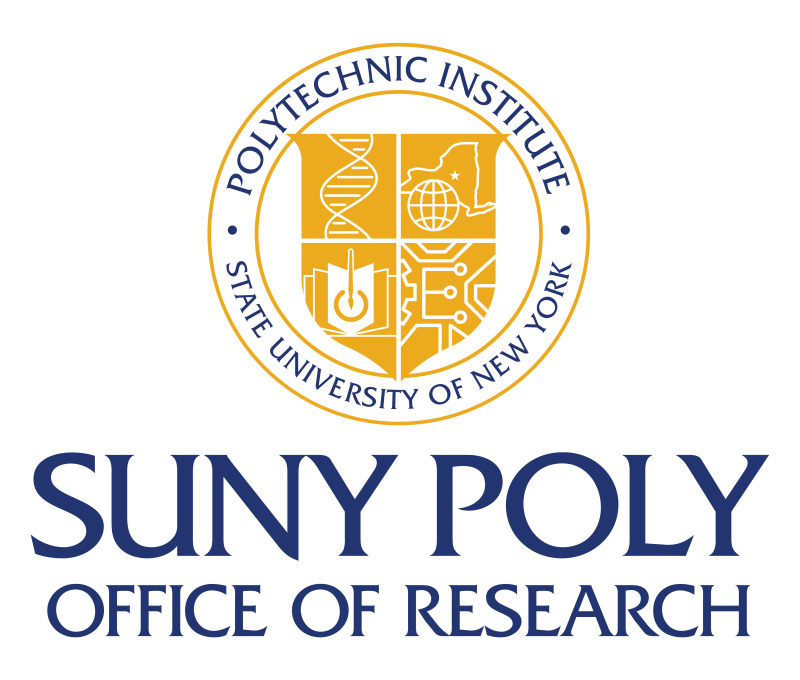National Science Foundation Awards SUNY Poly CNSE $380,000 to
Develop Innovative Ion Implant Instrument for Enabling Advanced
Computing Capabilities

For Release: Immediate – October 6, 2015
C ontact: Jerry Gretzinger, Vice President of Strategic Communications and Public Relations
(518) 956-7359 | jgretzinger@sunypoly.edu
National Science Foundation Awards SUNY Poly CNSE $380,000 to Develop Innovative Ion Implant Instrument for Enabling Advanced Computing Capabilities
ALBANY, NY – Supporting Governor Andrew M. Cuomo’s high-tech investment strategy driving innovation-based research, development, and economic opportunities across New York State, SUNY Polytechnic Institute’s Colleges of Nanoscale Science and Engineering (SUNY Poly CNSE) today announced that SUNY Poly CNSE Associate Professor of Nanoscience Dr. Mengbing Huang has been awarded $380,000 from the National Science Foundation (NSF) for the development of a novel nanofabrication instrument that could pave the way toward exponentially faster and more capable future quantum computer systems. Such fundamental research could also lay the foundation for advances in the area of quantum cryptography and telecommunication by enabling a high-security future internet based on quantum information processing, in addition to providing the means for developing highly sensitive nanoscale magnetometers for single molecular sensing.
“This National Science Foundation grant is further evidence that Governor Andrew M. Cuomo’s high-tech development model for New York State, led by SUNY Poly CNSE, is fostering the types of next-generation research that can usher in a new era of advanced technological capability,” said Dr. Michael Liehr, SUNY Poly Executive Vice President of Innovation and Technology and Vice President of Research. “We are thrilled that the National Science Foundation has recognized the potential of Dr. Huang’s work which could pave the way for the development of more advanced devices with wide application to everyday life, potentially improving everything from computers and medical devices to sensors, for example.”
“The National Science Foundation grant will enable development of this nanofabrication device at SUNY Poly CNSE’s unparalleled $24 billion Albany NanoTech Complex, offering a solution to the continued downscaling of silicon-based electronics devices that are approaching their physical limit. Being able to manipulate semiconductor materials at the atomic level by providing the means with which to place an exact number of ions in an exact location will open the doors to an exciting world of possibilities, including solid-state quantum communication and computation, or even the detection of a single molecule through the development of a more advanced sensing device,” said Dr. Huang. “This NSF funding is one more example showing how Governor Andrew Cuomo’s high-tech investments in New York’s innovation economy are powering world-class research with real-world impact.”
Advanced solid-state devices for quantum information processing and quantum computing are based on the ability to incorporate single atoms/ions or point defects at strategic locations to create specific networks of individual atomic-like bits for information encoding and communication based on quantum mechanical principles. The instrument, to be developed over the next two years, represents a significantly improved design as compared to current technologies; it combines nano-patterning, nano-positioning, and the detection of a single photon or electron to provide reliable and accurate control over the number of single ions that can be incorporated within the predefined nanoscale areas of a sample. In addition, it is expected that the instrument will be able to operate in various conditions, including across a wide range of temperatures; it will also be able to work with many dopant ion species/isotopes and with any type of semiconductor material. Significantly, such capabilities have not been possible at other currently existing facilities.
Serving to enhance SUNY Poly CNSE’s unsurpassed educational offerings, the project will provide unique opportunities for the institution’s undergraduate students who will be able to work with real research examples of the advanced nanofabrication instrument and experience laboratory demonstrations as part of an applied nanoengineering course. Additionally, the project will provide hands-on research experience to undergraduate students who are from scientifically underrepresented groups. A postdoctoral researcher will be involved in the development of the instrument, and this experience will serve as training to become a nanotechnology instrumentalist. A number of research groups from top tier northeastern universities who are looking to extend their nanofabrication capabilities for quantum information research have already expressed interest in using the instrument, and the instrument could also be useful for the semiconductor industry as it pursues tools that rely on the ever more minute manipulation of materials at the nanoscale level.
The deterministic nano-implant capability could also have implications for the development of more advanced quantum computers, in which their qubits, quantum information whose analogues are the 1’s and 0’s of traditional computers, are essentially enabled through the exact placement of the single defect ions. Because qubits represent 1’s and 0’s—or both at the same time—Dr. Huang’s nanofabrication device could play an integral role in enabling the brains of future computers to dwarf the power of today’s machines.








